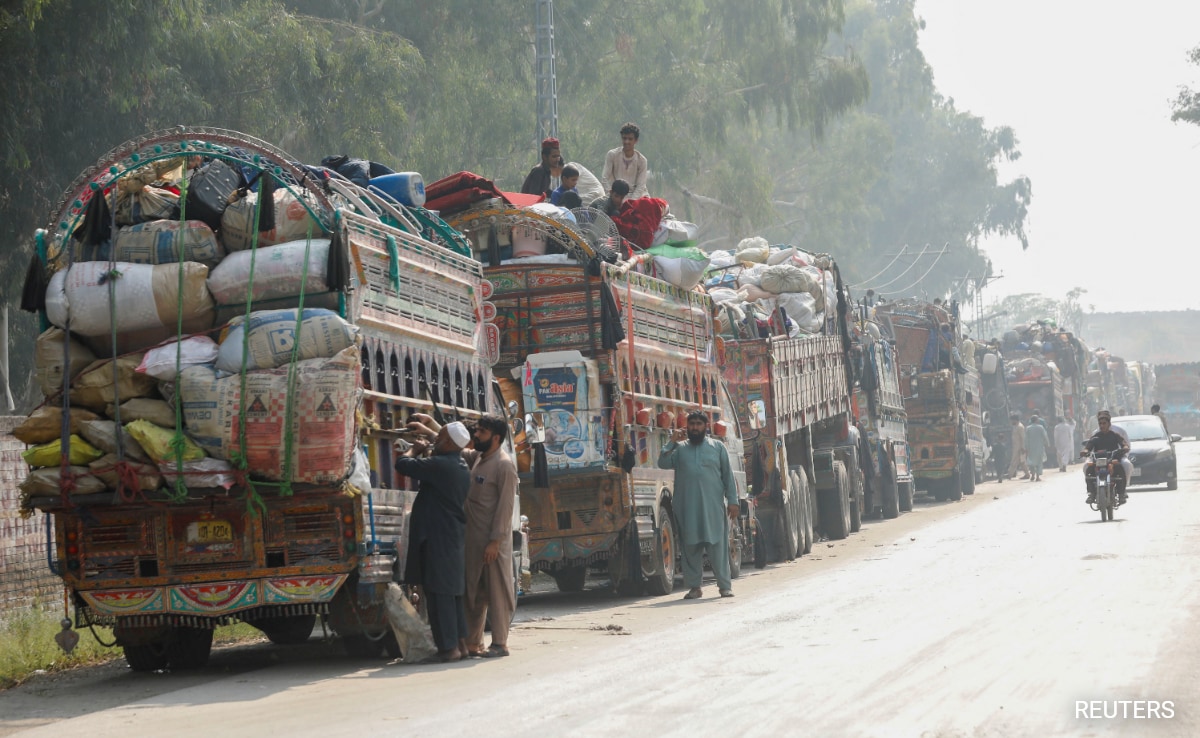Pakistan will start a crackdown on undocumented immigrants, including hundreds of thousands of Afghan nationals, from Nov. 2, the caretaker government’s interior minister said on Tuesday.
“Only two days are left for a voluntary return,” Sarfraz Bugti said in a video recorded statement, adding that the Nov 1 deadline set for the voluntary return will expire on Wednesday.
From Nov. 2 onward, he said, “Our lengthy and gradual operation will start,” ensuring that, “We are not deporting any refugees. Only those who are completely illegal will leave Pakistan.”
Pakistan is home to more than 4 million Afghan migrants and refugees, about 1.7 million of them undocumented, according to the interior ministry, including many who were born in Pakistan and lived there their entire lives.
Islamabad announced earlier this month that it wanted all undocumented immigrants to leave by Nov. 1.
Islamabad says it took the decision after Afghan nationals were found to be involved in crimes, smuggling and 14 suicide bombings out of 24 this year, alleging that the terrorists use Afghan soil to train fighters and plan attacks inside Pakistan.
Kabul denies this, saying Pakistani security is a domestic issue.
The expulsion plan marks a new low in already fractured relations between the South Asian neighbours.
Bugti said those leaving voluntarily will be assisted by the government at temporary centres set up to house the immigrants.
“We will try to provide them food and health facilities for two to three days at the holding centers,” the interior minister said.
The immigrants, mostly Afghans, many of whom have lived in Pakistan for years, will be processed at the centres.
Hundreds of thousands of Afghans moved to Pakistan to escape war and conflicts, and many are registered as refugees with the government and UN agencies.
Pakistan says it has received the largest influx of Afghan refugees since the Soviet invasion of Kabul in 1979.
![]()
